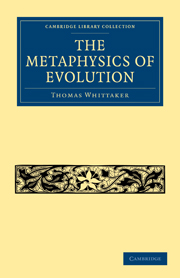SCIENCE AND IDEALISM
Published online by Cambridge University Press: 07 September 2010
Summary
Described as a defence of “atomistic and kinetic realism” against the attacks of a “radically positivist” theory of knowledge, Dr. Becher's careful and excellent work suggests the beginning of a new change in the meanings of philosophical terms. For the “realism” he upholds is not incompatible with that which in English thought has been known as idealism; and the “positivism” he opposes is an extreme phenomenism in comparison with which, as he observes himself, the positivism of Comte involves a whole-hearted acceptance of traditional hypotheses. The typical representatives of the new doctrine are Ostwald and Mach. Its aim is understood to be the elimination of every assertion about anything but actual sense-perceptions. Science indeed is still allowed the equivalents of the old “hypotheses”; but they are to be regarded as no more than useful “fictions.” The representation, for example, of matter as atomic in structure, and the accounts given of the transformations of energy in terms of the motion of particles, cease for the new chemistry and physics to be anything but mathematical devices to facilitate calculation. An ideal science of “energetics” would dispense with all imaginary mechanism, and simply state that one kind of “energy” (heat, light, electricity, etc.) under given perceived conditions substitutes itself for another; no attempt being made at picturing the process to which this substitution corresponds. As those who have put forward the bestknown expressions of the new doctrine are men of science, their positions cannot well be ignored in relation to scientific thought.
- Type
- Chapter
- Information
- The Metaphysics of Evolution , pp. 141 - 146Publisher: Cambridge University PressPrint publication year: 2009First published in: 1928



